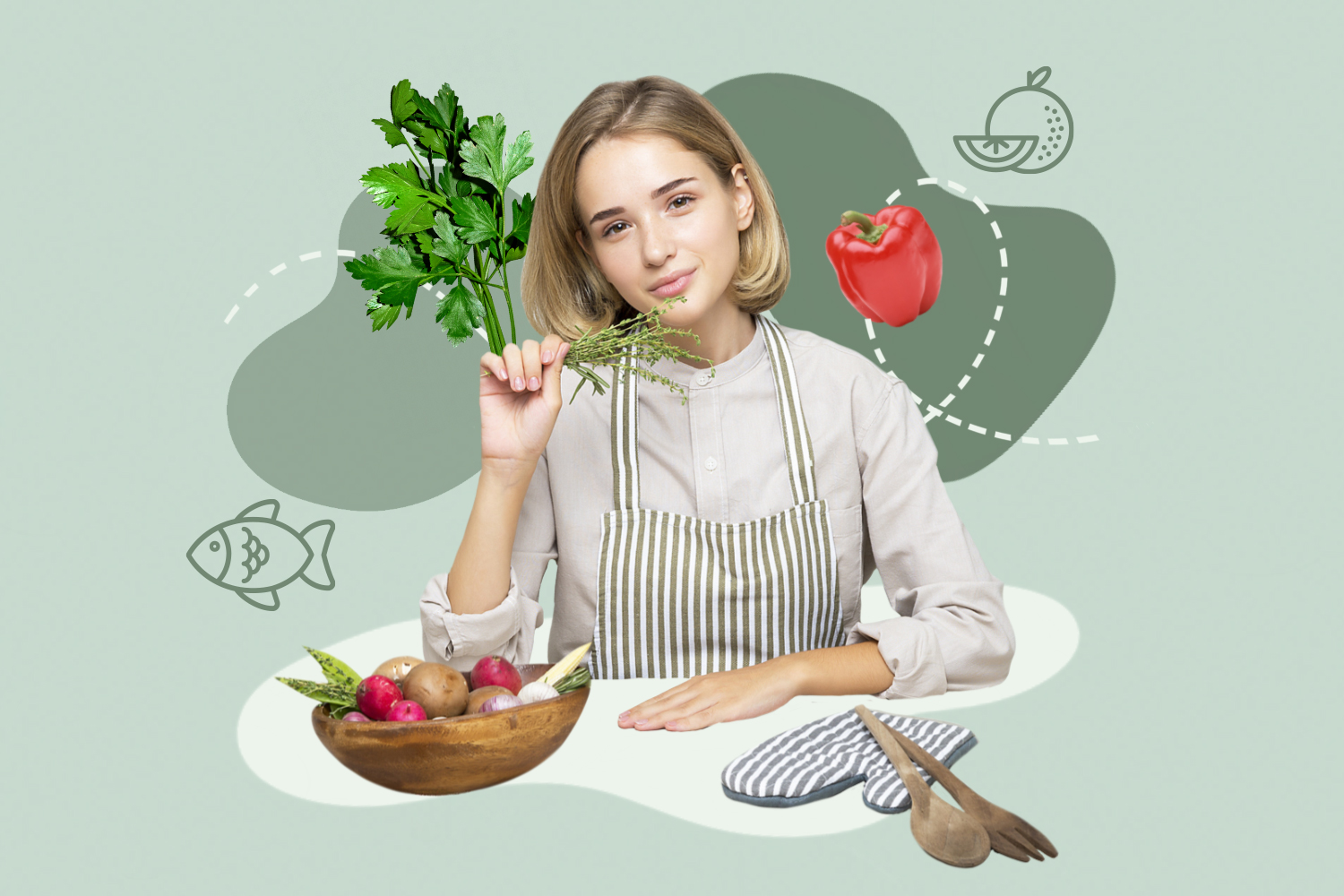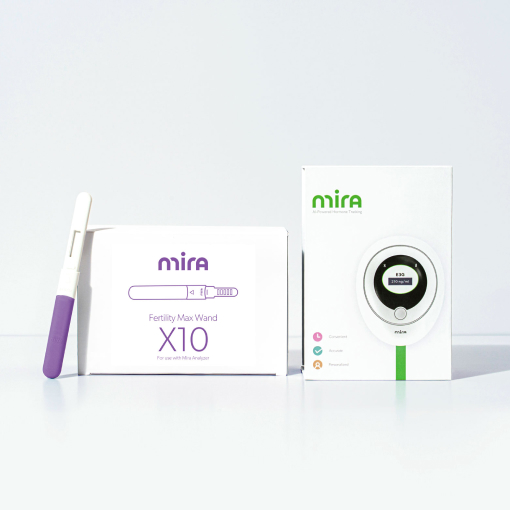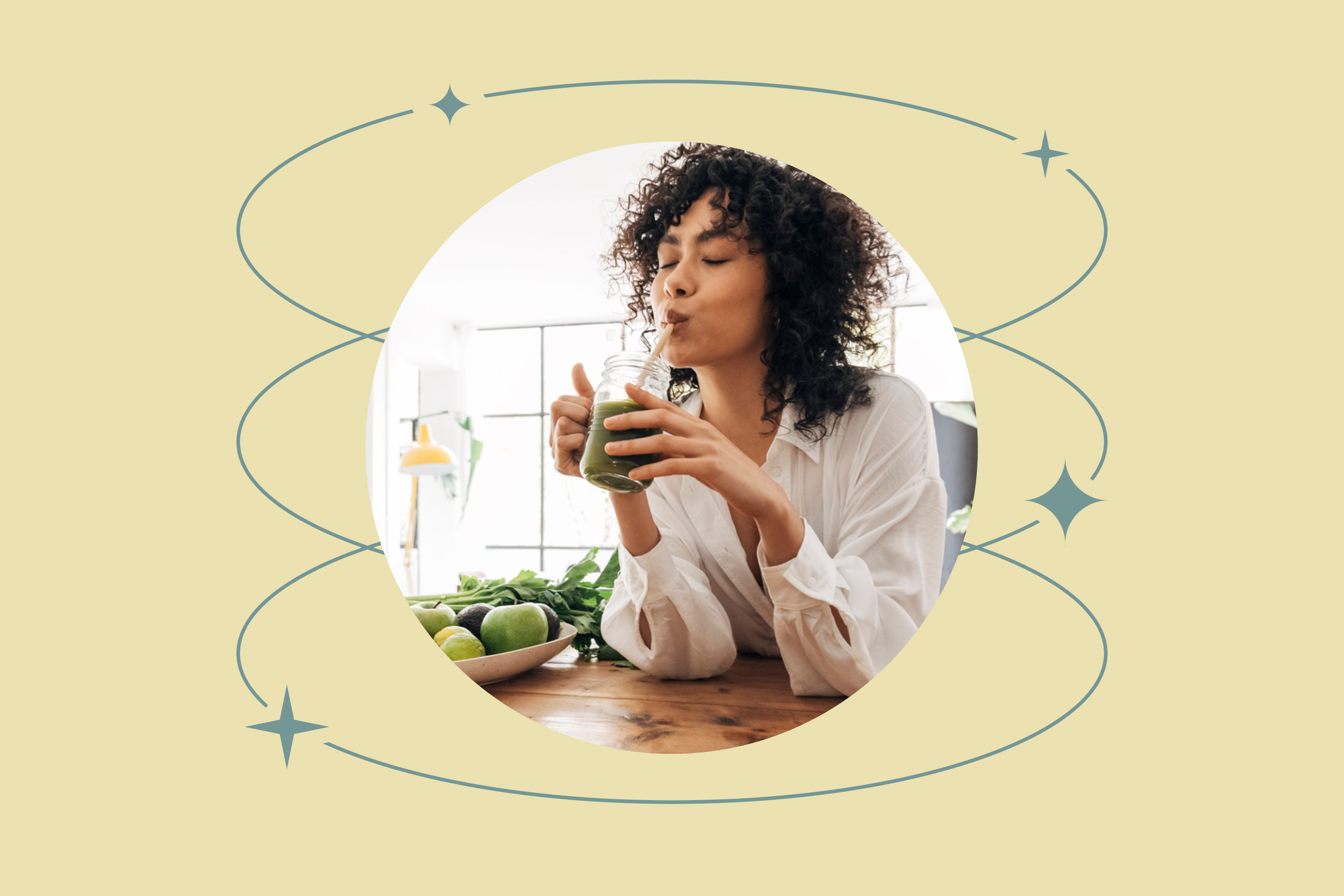Pre-Pregnancy Diet: What Foods Should You Be Eating When TTC?
If having a baby is on the horizon for you, you’ve probably already read a lot about what you should eat and not eat while pregnant.
However, when it comes to getting pregnant in the first place, your diet is just as important before conception as it is afterward. That’s because your pre-pregnancy diet can have an impact on things like:
- Your hormones and ovulation patterns
- Likelihood of conceiving
- The health of your baby in its early phases of development.
In this post, we will take a look at the purpose of pre-pregnancy diets, what types of foods you should focus on (and avoid) if you are trying to conceive, and practical ways for starting your pre-pregnancy diet today.

Pre-pregnancy diet goals
It’s easy to think, “I’m not pregnant yet, why do I need to worry about my diet right now?”.
And while you may not need to say “no” to your occasional glass of wine or morning cappuccino right away, it’s still important to understand how your diet and certain fertility foods can impact your chances of conceiving.
One initial risk factor to consider is your weight. What we eat influences our weight and BMI, and if your BMI is too low or too high, your chances of becoming pregnant are adversely affected. Additionally, certain types of foods such as processed meats, potatoes, and sugary snacks/beverages are also known to have a negative impact on fertility.
Ultimately, by maintaining a healthy pre-pregnancy diet, you can:
- Boost fertility and improve your chances of conceiving.
- Establish a healthy routine before becoming pregnant.
- Prevent pregnancy-related complications such as gestational diabetes or high blood pressure.
- Reduce the risk of your baby suffering from a birth defect, such as spina bifida or anencephaly.
- Prevent the need to require a C-section due to weight gain.
Unfortunately, there is no single, specific type of food to ensure pregnancy. However, there are some basic dietary and lifestyle guidelines you can follow to not only maximize your chances of getting pregnant, but to also create a nutrient-rich environment for a baby.
Here are a few tips to get started.
Pre-pregnancy diet tips
What nutrients should you be focusing on?
Folic acid/folate
Folic acid, also known as Vitamin B9 is a nutrient that promotes healthy cell growth, helps to prevent birth defects, and may improve levels of progesterone in some women.
You can find folic acid in a number of foods such as leafy green vegetables, nuts, and bananas. Folic acid is also found in many prenatal vitamins and can also be taken as a standalone supplement.
Fiber
Fiber is another great nutrient to consume pre-pregnancy as it helps you stay satiated after meals and can help to keep your blood sugar regulated.
Foods rich in fiber include green peas, beans and lentils, berries, nuts, seeds, whole grain bread, pasta, and cereals.
Iron
Another essential nutrient for your pre-pregnancy diet is iron, which can be found in meat, eggs, beans, and leafy green vegetables.
Iron not only helps to boost your energy levels, but by consuming plenty of iron-rich foods pre-pregnancy, you can build up critical iron reserves necessary for growing a healthy baby.
Calcium
The next nutrient on the list is Calcium, which is prominent in many dairy products like cheese, yogurt, and low-fat milk. Calcium is not only important for keeping your bones healthy and strong, but it can also help to keep your circulatory, muscular, and nervous systems regulated.
Omega-3 fatty acids
Omega-3 fatty acids, found in leafy green vegetables, flax seeds, nuts, and fish products, are not only critical for the early development stages of a fetus, but they can also help to prevent depression during and after pregnancy.
One of the best ways to consume plenty of Omega-3’s is through a prenatal vitamin and/or a fish oil supplement.
Protein
Protein-rich foods are also worth incorporating into your pre-pregnancy diet plan. Foods rich in protein can help you stay fuller for longer, reduce your desire for unhealthy snacks, and keep your blood sugar at a healthy level.
Some examples of high-protein foods include lean meats and poultry, broccoli, beans and lentils, and nuts.
What foods should you eat when trying to get pregnant?
Greens
Leafy green vegetables are packed with three key nutrients necessary for the early phases of pregnancy including iron, folates, and Omega-3 fatty acids. Consider eating plenty of kale, spinach, romaine lettuce, collard greens, and watercress if you are trying to conceive.
Of all the potential foods to get pregnant faster, leafy green vegetables are one of the best choices given their versatility and relatively low-calorie counts.
Lean meat
Lean meats such as chicken breast, beef tenderloin, and pork loin are all high in protein. When incorporated into your diet consistently, these lean meats can help you to stay satiated for longer and maintain a healthy pre-pregnancy weight.
Fish
Certain types of fish are an excellent source of Omega-3 fatty acids, which can help to promote healthy fetal development, alleviate symptoms of depression, and in some cases can even improve sleep quality.
If you’re worried about exposure to mercury, try to stick with options like salmon, shrimp, sardines, and tilapia.
Dairy
Dairy products are high in calcium, protein, and vitamin D, which can all contribute to a healthy prenatal diet. It is recommended to get around three servings of milk or other dairy products such as Greek yogurt or cottage cheese daily if you are trying to get pregnant.
Beans
Beans are an excellent source of protein, fiber, iron, and calcium – all of which can support healthy bone and muscle growth for you and your baby in the first trimester. Not only that, but beans can help you to stay fuller for longer throughout the day.
Chickpeas, kidney beans, and lentils are all in the bean/legume family and would be suitable to incorporate into your pre-pregnancy diet.
Nuts
Nuts are another great source of fiber, protein and Omega-3 fatty acids, making them a healthy option for snacking or adding to salads. The nuts with the highest levels of protein include almonds, pistachios, walnuts, and cashews.
Citrus fruits
Some of the best fertility foods when trying to get pregnant include citrus fruits like lemons, oranges, and grapefruits, all of which are high in both calcium and folate. As mentioned previously, folate is helpful for regulating pre-pregnancy hormones and promoting healthy cell growth for you and your baby.
Whole grains
Whole grains are packed with iron, fiber, and folates. In addition to reducing your risk of weight gain, the nutrients found in whole grains can also help to regulate your pre-pregnancy hormones and maintain healthy blood sugar levels.
A few whole grains to incorporate into your diet include brown rice, oats, quinoa, rye bread, and whole wheat pasta.
What should you avoid?
Processed meats
Consuming high levels of processed meats such as salami, sausages, and lunch meat while trying to conceive can increase your risk of developing gestational diabetes once pregnant. While it’s okay to have an occasional slice of pepperoni pizza or ham sandwich, try to keep processed meats to a minimum while on your fertility diet.
Soft drinks and sodas
Soft drinks and sodas are extremely high in sugar, and if drank regularly, can contribute to weight gain and negatively impact fertility. Try to save sugary soft drinks as a weekend treat, and replace your daily soda with something healthier such as water or low-fat milk.
Artificial sweeteners
Even though artificial sweeteners may help you to cut back on sugar, they may also decrease your chances of conceiving and potentially be harmful to an embryo. If you’re not a fan of plain water, opt for squeezing a fresh orange or lemon in your water instead of using a flavored sweetener.
Caffeine
Caffeine should also be avoided while trying to get pregnant as it can both reduce fertility and prevent your body from absorbing critical nutrients. You do not have to give up your morning coffee altogether though – simply try to stay below 200 milligrams of caffeine daily and your fertility rates should be unaffected.
A few foods to watch that contain caffeine include tea, chocolate, soft drinks, and energy drinks.
Alcohol
Consuming alcohol is known to hinder your chances of getting pregnant. Not only that, but it can be harmful to your fetus in the early stages of development. If you tend to drink alcohol socially, opt for a citrusy mocktail instead and nobody will know that it is alcohol-free.
Cigarettes
It is estimated that women who smoke are approximately 2X more likely to suffer from infertility compared to women who do not smoke. Quitting smoking is no easy task, however, but it’s essential if you are trying to conceive and have a healthy pregnancy.
Lifestyle tips when trying to get pregnant.
Practice mindfulness
Mindfulness is simply taking a few moments each day to reflect, breathe, and focus on the present moment. This not only helps you to more effectively manage stress (which can be detrimental to conception), but it can help you to feel more relaxed, sleep better, and develop a more positive outlook on life.
Healthy sleep
Maintaining good sleep hygiene when trying to conceive is crucial for hormone regulation, stress management, and appetite control.
To ensure that your body gets enough sleep, try to go to bed and wake up at the same time each day. You should also try to avoid caffeine in the afternoons, limit the use of your smartphone in the evenings, and create a relaxing sleep environment in your bedroom.
Don’t skip working out
Getting regular exercise is critical for maintaining your weight, building strong muscles, and reducing stress and anxiety.
Remember though, not all exercise has to be high-impact like running or lifting weights at the gym. Simply going for a walk for 30 minutes per day is a great way to stay physically fit and healthy.
Take supplements
You might not be able to have the perfect diet every single day – but that’s okay! Taking pre-pregnancy supplements such as prenatal vitamins and folic acid is an absolute must for ensuring your body gets all the right nutrients consistently.
Recommended for you
Navigate your fertility with peace of mind
However, bear in mind that supplements should never be used as a replacement or security blanket for a bad diet. It’s still important to consume lots of veggies, whole grains, and lean proteins while trying to get pregnant.
Pre-pregnancy diet plan: Where to start
If you’ve read through this list, you might be feeling a bit overwhelmed about how to realistically implement these changes into your real life.
To help you get started, here are a few quick tips for building the best pre-pregnancy diet for you and your lifestyle.
- Start small. Big changes to your diet can start with small, incremental changes. Instead of overhauling your diet completely, try to incorporate some new fertility recipes & foods slowly. If your family prefers the more “meat and potato” style meals, try to add in some healthy vegetables like spinach, broccoli, or kale. Over time, these small changes can add up and even be refined further.
- Make replacements. There are several simple replacements that you can make to get some healthier foods into your diet. For example, opt for a leaner cut of meat the next time you go out for a meal, or buy brown rice instead of white rice the next time you’re at the grocery store. Simple replacements like this can make a huge difference in your overall diet and health.
- Be consistent. When working towards your pre-pregnancy diet, it’s better to prioritize consistency above all else. Instead of trying to implement a completely different meal plan than what you’re accustomed to, make a few small changes and replacements that you can maintain consistently. Consistent changes will eventually become healthy habits that you won’t have to think twice about!
The most important tip of all though is to be kind to yourself.
It’s easy to get frustrated or disappointed with ourselves when we give in to that tempting treat at the movies or forget to take our prenatal vitamin one morning. If this happens – and it’s bound to happen a few times – never forget that each day is a clean slate and you can try again tomorrow.
Mistakes are totally normal, and being kind and compassionate to yourself is paramount for staying relaxed and healthy while trying to conceive.

Mira’s Editorial Process
All content produced by Mira meets stringent editorial standards, ensuring excellence and accuracy in language and medical precision. Every piece undergoes thorough fact-checking and review by qualified professionals. Check out our full editorial process to learn more.














